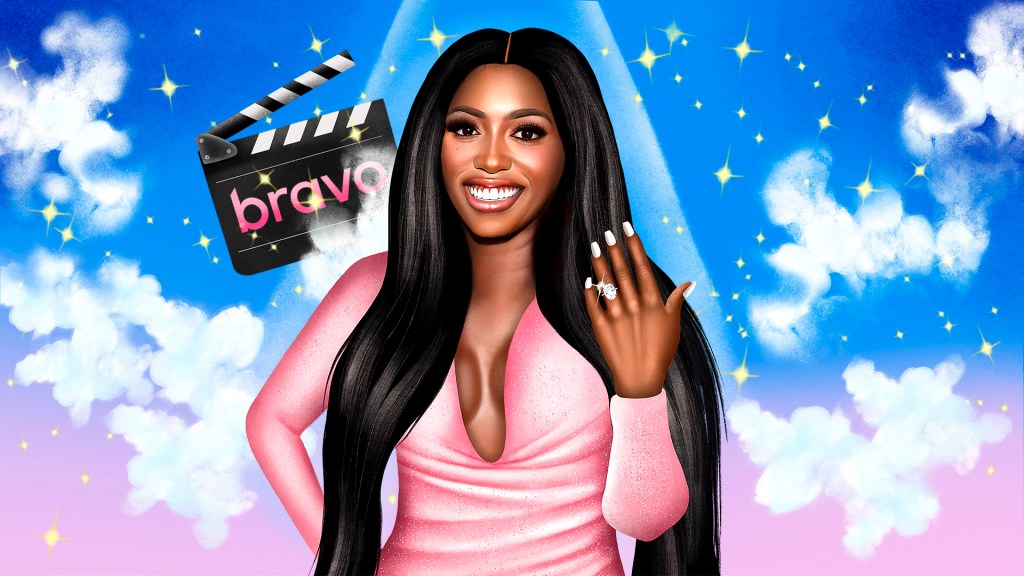Earlier this month, Gizelle Marie was returning from a work trip to Washington, DC when she and other dancers started chatting each other on social media about the difficulties they faced trying to earn a livable wage working in New York City strip clubs. After hearing many similar stories of unfair treatment, Gizelle aired her grievances in an Instagram post.
“I’m so sick of seeing my fellow dancers in New York complain about deserving what is supposed to be theirs. Listen you bumb ass fucking promoters and club owners y’all fucking up the damn money,” Gizelle wrote, describing an unfair system of wage distribution. Soon, comments and messages poured in from other dancers with similar complaints, including Panama, who’s worked in New York City strip clubs for eight years. Gizelle, Panama, and a few other women got to talking, and as their movement gained traction, the #NYC Stripper Strike was born.
Videos by VICE
One issue for dancers in New York City, according to Gizelle and Panama, is that in the past several years, club owners and promoters have stopped hiring bartenders to simply tend bar, and instead bring in women with big social media followings to attract customers. Since both bartenders and dancers rely heavily on tips—and because dancers’ performance spaces can be next to or literally on the bar—this can lead to confusion over who gets money from customers. Some dancers even claim that bartenders have taken their money off of the dancing stage.
These legitimate frustrations have been reduced by some media outlets as a catfight between two groups of women, but participating dancers want to make it clear that this is not a “strippers vs. bartenders” battle, but rather, a fight for power and respect in a space that so often denies both from female employees. “We’re not about stopping anybody from making money,” Panama told Broadly, “We want [bartenders] to do their job and we do our job and the promoters do their job and the club owners do their job. Let’s set some rules and regulations down for everyone.” Gizelle agreed, adding that “the promoters and the managers have segregated us” by treating bartenders (or “startenders”—an industry term for amateur bartenders with social media clout) differently than dancers.
Dancers of the #NYC Stripper Strike are also shedding light on discrimination against black women in the industry. According to Gizelle and Panama, promoters rarely ever hire bartenders who are black or dark-skinned, and black dancers also have a harder time getting scheduled on nights with high earning potential and gaining access to VIP spaces.

This isn’t the first time labor struggles have highlighted racism at strip clubs. When dancers at the San Francisco-based strip club the Lusty Lady unionized in 1997, performers of all races wanted to address the issues they faced, like lack of sick pay or protection from customers filming performances without permission. But black dancers pointed out other issues, like the fact that they weren’t given access to lucrative dancing opportunities granted to white and Latina dancers.
In Unequal Desires: Race and Erotic Capital in the Stripping Industry, former Lusty Lady dancer Siobhan Brooks writes: “The full impact of the racism at the club was the issue of Black women performing in what was called ‘Private Pleasures,’ a booth that was separate from the main stage, but a more lucrative way for dancers to perform, with wages starting at $5 for 3 minutes; dancers could make up to $60 an hour … I noticed that although non-Black women of color worked in this booth, Black dancers were never scheduled.” Workers successfully pushed to change this policy in the unionizing process.
New York City dancers face a complicated yet common problem in their fight for better treatment—unlike dancers at the Lusty Lady, they’re classified as independent contractors. This limits the clubs’ responsibilities and means that the women classified as independent contractors aren’t entitled to sick days, workers comp, unemployment, and other workplace rights. Whether women who dance in strip clubs should be classified as independent contractors has been up for debate for years, and since 1998, several courtcases have been settled that involved reclassifying dancers from independent contractors to employees to receive back pay.
Now, women of the NYC Stripper Strike are strategizing about what comes next. Last week, approximately 30 dancers gathered at Poletic Justice, a pole studio in the Bronx to share stories and strategize. Poletic Justice owner M. Marie has worked as an entertainer for the past 10 years in New York and told Broadly that “of course” she would provide her space for “a room of women to come together and support each other.”
Dancers at the meeting told Broadly that they haven’t called for an official strike or boycott yet because they want to be strategic. They recognize that their efforts will only be successful if they can get more dancers on board and help people move from fear to action. Panama hopes dancers will see that “if we let [the managers] do it, they’re going to keep doing it.”
For More Stories Like This, Sign Up for Our Newsletter
Women of the NYC Stripper Strike are undeterred by people who dismiss them because of their jobs. Marie scoffed at the idea that dancers being treated unfairly should just find a different occupation. “Man, you’re not happy with your 9 to 5!” she quipped. For Panama, this movement for workplace rights is “no different than what Colin Kaepernick is doing”—taking a risk and speaking up to make a difference.
“Forget about it being a strip club,” Panama said. “We’re still being discriminated against as black women in the workplace in 2017.”




